The 48th Session of the Human Rights Council
13 September – 8 October 2021
ITEM 2 - Annual report of the United Nations High Commissioner for Human Rights and reports of the Office of the High Commissioner and the Secretary-General
Interactive Dialogue with the Independent Investigative Mechanism for Myanmar
(13 September 2021)
By Louise Requin / GICJ
Executive Summary
During the 1st meeting of the 48th session of the Human Rights Council, the head of the Independent Investigative Mechanism for Myanmar (IIMM) presented its annual report. The IIMM’s mandate is to collect, consolidate, preserve and analyze evidence of the most serious international crimes and violations of international law committed in Myanmar since 2011.
The report of the IIMM presents details of its mandate, its findings, its capacity-building and cooperation efforts with international judiciary authorities. Preliminary findings based on the collected evidence point to crimes against humanity committed by the security forces, with greater intensity since the coup of February 2021. The IIMM believes it could make secure, substantiated claims of such crimes with the evidence it has been presented with.
Regarding capacity-building, the IIMM is looking to hire more specialized staff. The mechanism puts primordial importance on the investigation of crimes of sexual and gender-based violence and is therefore looking hire specialized staff members trained to deal with victims of such crimes. Moreover, the IIMM is seeking to improve its language capacity to better communicate with victims and make its findings more visible to the people of Myanmar.
The mechanism seeks to strengthen the reach of its mandate by accessing financial records. Head of the IIMM Nicholas Koumjian believes that crimes are incentivized by financial interests.
Furthermore, the report of the IIMM stressed the importance of cooperation with judicial authorities, as the mechanism itself is not a tribunal, and does not have the capacity to prosecute or indict individuals. Therefore, the ongoing investigations at the ICC and the ICJ are crucial to the achievement of truth and restorative justice for the people of Myanmar. The mechanism is collaborating in these international proceedings through the provision of evidence.
Geneva International Center for Justice strongly supports the mandate of the IIMM, as truth-seeking and documentation are essential steps to criminal prosecution. Restorative justice is crucial for the victims and necessary to the memory of those who have died under the regime of Myanmar. However, the IIMM cannot bring perpetrators to justice on its own. GICJ calls on all relevant judicial authorities to seize the matter and prosecute those responsible. GICJ supports the ICC’s ongoing investigation and calls on all signatories of the Rome Statute to do the same.
Furthermore, GICJ strongly encourages all states who host Rohingya refugees to enhance their protection. The killing of Rohingya leader Mohibullah on September 29 unfortunately shows the international community is not doing enough to protect the victims of brutality who have fled from Myanmar. GICJ encourages the international community to provide technical assistance and financial support to countries hosting and resettling Rohingya refugees.
Background
The Independent Investigative Mechanism for Myanmar was established in Resolution 39/2 from September 2018 by the Human Rights Council. It was mandated to collect, consolidate, preserve and analyze evidence of most serious international crimes and violations of international law committed in Myanmar since 2011.
Furthermore, the IIMM is mandated to prepare files for the expedition of independent and fair criminal proceedings in any court (at any level – local, regional, national or international) that may have jurisdiction over the said crimes, granted the court does not allow the death penalty. The purpose of the IIMM therefore includes producing evidence for the international courts, the ICC (International Criminal Court) and the ICJ (International Court of Justice). So far, both courts have seized the matter in the following cases: ICC – Situation in Myanmar/Bangladesh; ICJ – The Gambia v Myanmar. The ICC was empowered to investigate in virtue of the Rohingya refugee crisis in Bangladesh, as Myanmar is not itself party to the Rome statute. The cross-border element and the consequences of the genocide on Bangladesh, which is party to the Rome Statute, enabled the prosecution of the crime of genocide. The ICJ investigation was triggered when The Gambia filed for proceedings in November 2019, claiming Myanmar had failed its obligations under the 1948 Genocide Convention. Both investigations may make use of the information compiled by the IIMM, granting that they preserve the identity of witnesses and protect them from retaliation.
The report of the IIMM presented at the 48th session of the Human Rights Council covers all its activities from July 8, 2020 to June 15, 2021. Despite the obstacles of the Covid-19 pandemic, the mechanism was successful in analyzing more than 900 000 information items so far, including 200 000 collected since February 2021.
Report of the IIMM
Evidence collection and storage
The IIMM’s report details the mechanism’s fulfillment of its mandate, with reference to its findings, external cooperation, visibility, and capacity-building. The IIMM is tasked to collect, preserve information, analyze the material it is communicated, share relevant material with the courts, explain and communicate its mandate and findings to stakeholders. Therefore, the IIMM encounters a variety of actors, including victims, survivors, refugees, stakeholders, journalists, human rights activists, state officials, judiciary personnel, UN agency staff, court staff. The IMM has thus adopted a comprehensive strategy which aims at expanding its collection of evidence, increasing the availability of evidence to courts, improving cooperation with external actors, and strengthening its mandate.
Since its creation, the mechanism has collected 1.3 million information items. The strategy adopted to analyze the evidence is aimed at establishing individual criminal responsibility for crimes that are representative of systematic abuse. Therefore, the investigation focuses on proving the scale, nature and commission of the crimes, as well as linking them to individual responsibility.
The report mentions concerns of confidentiality regarding data storage and sharing. The mechanism uses advanced electronic storage and has a cybersecurity policy which is constantly updated to prevent the spill of documents which could cause serious harm to the victims and stakeholders who have shared information.
Collaboration with the ICC and the ICJ
The mechanism seeks to improve its engagement with both courts. In The Gambia v Myanmar, the ICJ is considering the complaint under the Convention on the Prevention and Punishment of the Crime of Genocide. The IIMM is sharing all relevant materials with the parties to the case, with the consent of the information providers and after analysis of the potential risk they may face.
Analysis of the evidence
Since the military seizure of power in February 2011, the mechanism has been flooded with information and communications from victims and stakeholders. The IIMM reports that it has reason to believe that since them, the military authorities have committed crimes against humanity, including murder, persecution, imprisonment, sexual and gender-based violence including against children, torture and disappearances. These alleged crimes have been communicated to the mechanism on an unprecedented scale, and the IIMM is currently monitoring, collecting, verifying, and analyzing the evidence.
The preliminary findings of the IIMM attest to widespread, systematic attacks on the civilian population carried out by the military authorities. The coup in itself, and the political struggle around the distribution of power in Myanmar, do not fall under the mandate of the IIMM. Constitutional processes, fair elections and democratic principles are not elements relevant to criminal analysis of serious violations of international humanitarian law, and therefore fall outside the competence of the IIMM. However, the serious violations and international crimes that are being committed by the military authorities in the context of the coup are perfectly relevant to the IIMM and are being investigated.
Crimes against humanity include acts of violence committed as part of a widespread or systematic attack on a civilian population, involving the coordinated commission of multiple attacks across the territory. They may be either widespread, meaning both the extraordinary scale of one act of violence and the cumulative effect of criminal acts, or systematic. The latter refers to the organized and commissioned nature of the acts of violence.
In Myanmar, the IIMM found that hundreds of civilians have been killed and thousands detained arbitrarily by the security forces. Victims are subjected to torture and sexual violence. The number of victims attest to the magnitude of the crime. Security forces are acting in coordination, and detain, kill and disappear individuals on the basis of their political affiliation, activity as journalists, medical professionals, activists, protestors. Protestors have been subjected to lethal use of force. If substantiated correctly with the appropriate evidence, this information could be representative of crimes against humanity. The IIMM is confident that it is or will be in possession of information items which will prove individual responsibility for these crimes.
Cooperation with external actors
The report emphasizes the importance of the cooperation and helpful behaviors by member states, specifically states of the Asia-Pacific region. Cooperation is needed for witness protection, specifically among the refugee population.
Capacity building and visibility
The IIMM reported on its administrative needs, whereby the mechanism deplored the consequences of the Covid-19 pandemic, which has hindered its ability to travel to meet information providers, witnesses and victims. However, the IIMM remains confident that its current targeted recruitment will improve its work. The IIMM seeks to provide more information in the languages local to Myanmar and seeks to hire staff with the relevant language skills to better engage with the large variety of evidence.
The IIMM is also placing a high priority on crimes of sexual violence and gender-based violence, including such crimes targeting children. To better its capacity in dealing with such crimes, the IIMM is hiring specialized staff specifically trained to engage with victims of such crimes. These efforts seek to advance outreach capacity of the mechanism to reach more witnesses and improve the quality of their exchanges with the mechanism.
Interactive dialogue with the Head of the IIMM
Opening statement
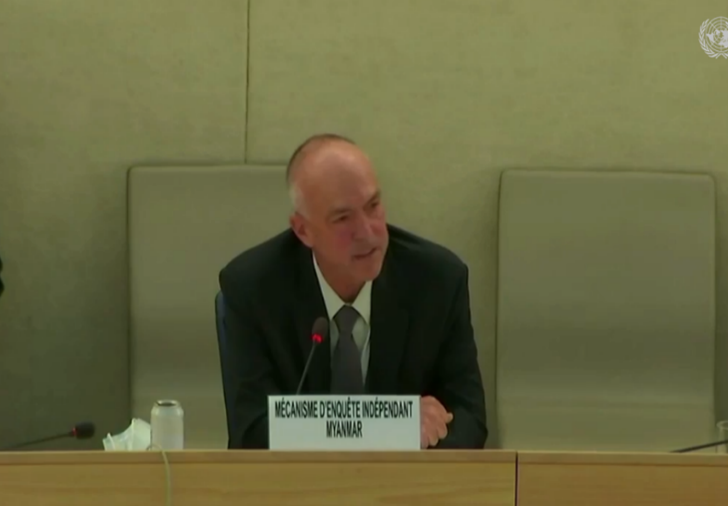
Nicholas Koumjian,the head of the IIMM,opened the dialogue by reiterating the mandate of the mechanism. He pointed out the tragic magnitude with which crimes continue to be committed in Myanmar. He argued that the history of impunity for crimes in the country was enabling serious violations of human rights to perpetuate. Koumjian mentioned the problem of the refugees, mainly for the Rohingya minority, who have been forced to flee into all neighboring countries. This has caused a strain on the resources of the host countries and depleted the labor resources of Myanmar dramatically.
The head of the IIMM also noted that the mechanism was giving special attention to crimes of sexual and gender-based violence which often go underreported. These crimes demand particular skill, which the mechanism is determined to acquire through targeted recruitment and training. This is important for the victims to be best welcomed by the mechanism, and for them to feel safe when cooperating with the IIMM. A lot of individuals remain afraid to provide information out of fear of retaliations.
Koumjian reiterated the initial analysis given in the report: crimes are being committed with widespread and systematic character. He noted that the mandate of the group merely allowed the collection of evidence and its analysis, and at best the facilitation of prosecution of these crimes. However, he insisted that the mechanism is not a court, and therefore that real accountability will depend on the relevant judicial institution to seize the matter, using the evidence the mechanism is gathering.
Dialogue with the head of the IIMM
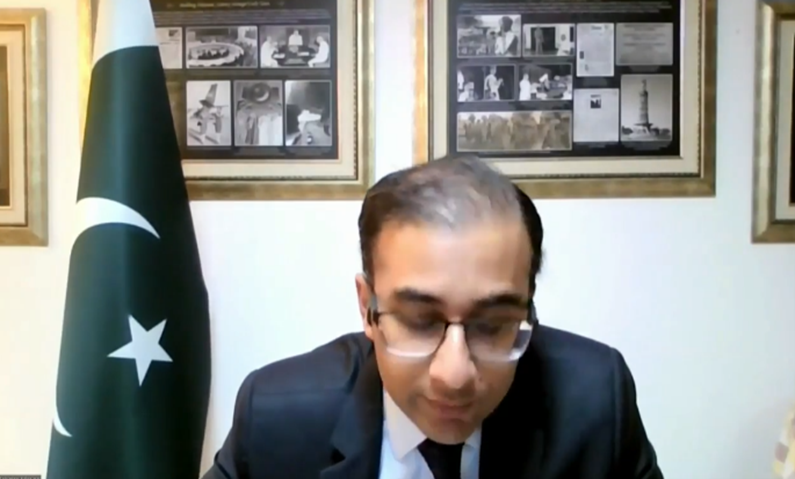
All participating delegations condemned Myanmar’s behavior, including the violations of human rights to the Rohingya population, the indiscriminate targeting of civilians and the use of force against protestors. They demanded Myanmar respect its international legal obligation and cease the violence. Pakistan deplored the consistent non-cooperation of Myanmar with the mandate. Bangladesh noted to criminal proceedings in the ICC and the ICJ, and asked the IIMM to maintain close collaboration with these institutions. The delegation reiterated its full commitment to the completion of the mechanism’s mandate and affirmed its willingness to cooperate.
Several interested delegations made comments and asked questions to the head of the IIMM. Most delegations expressed undivided support for the mechanism’s mandate and asked how they could themselves assist in its success.
Nicholas Koumjian reponded to questions, advising interested delegations to collaborate by providing assistance to refugees and protecting witnesses, specifically in neighboring Asian Pacific countries. He advised countries to ensure the safety of the individuals who are cooperating with the mechanism, as many witnesses feel at risk when engaging with the mechanism.
He also mentioned that many states do not include legal provisions to facilitate cooperation with the mechanism. This means that the provision of evidence by the IIMM is not enabled by the judiciary in several countries. Koumjian therefore asked for flexibility, or better yet amendments, to enable full cooperation with the mechanism.
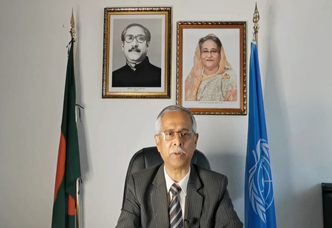
Nicholas Koumijian asked for the strengthening of the mandate, in order for the mechanism to access financial information. Crimes are often committed out of financial incentives and understanding and deciphering such incentives may enable the establishment of criminal responsibility. Financial records therefore provide crucial evidence for the investigation into crimes against humanity. They can prove intent and evidence ties between perpetrators and the events. Therefore, the realization of the mandate needs to be expanded to include financial evidence.
Finally, Nicholas Koumjian stressed the importance of accountability and punishment. Impunity has fueled criminal behavior by the military authorities, a fact that he deplores. Therefore, he stressed the importance of the IIMM’s collaboration with the ongoing ICC investigation and announced he would meet the next day with the special prosecutor.
Position of the Geneva International Centre for Justice
Geneva International Center for Justice strongly supports the mandate of the IIMM. Truth, justice and accountability must not wait for a transition of power but must be sought immediately. International cooperation provides the tools allowing for such international investigations. However, the IIMM cannot bring perpetrators of crimes to justice on its own; the work of the mechanism is only relevant if courts seize the matter. Prosecution must therefore be encouraged at all levels, thereby fulfilling needs of harm prevention and restorative justice. GICJ Encourages all relevant tribunals to seize the matter where their jurisdiction applies.
GICJ also encourages all relevant member states to support the Rohingya refugee population they may be hosting. In light of the killing of Rohingya leader Mohibullah in Cox’s bazaar, Bangladesh on September 29, GICJ calls upon all of those hosting Rohingya refugees to protect their activists, leaders, and to enhance the visibility of their resistance. The international community should additionally provide all technical and financial support to the countries hosting refugees. International protection and resettlement should be provided to all of those who were forced to flee from Myanmar, due to their belonging to a particular group of victims of persecution by the regime.
Justice, Human rights, Geneva, geneva4justice, GICJ, Geneva International Centre For Justice
Previous Reports from the 48th Session of the UN Human Rights Council
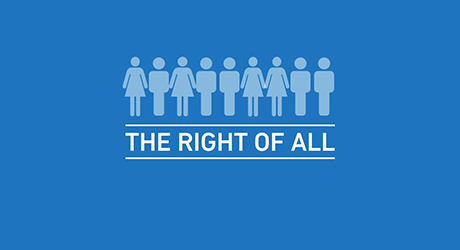 |
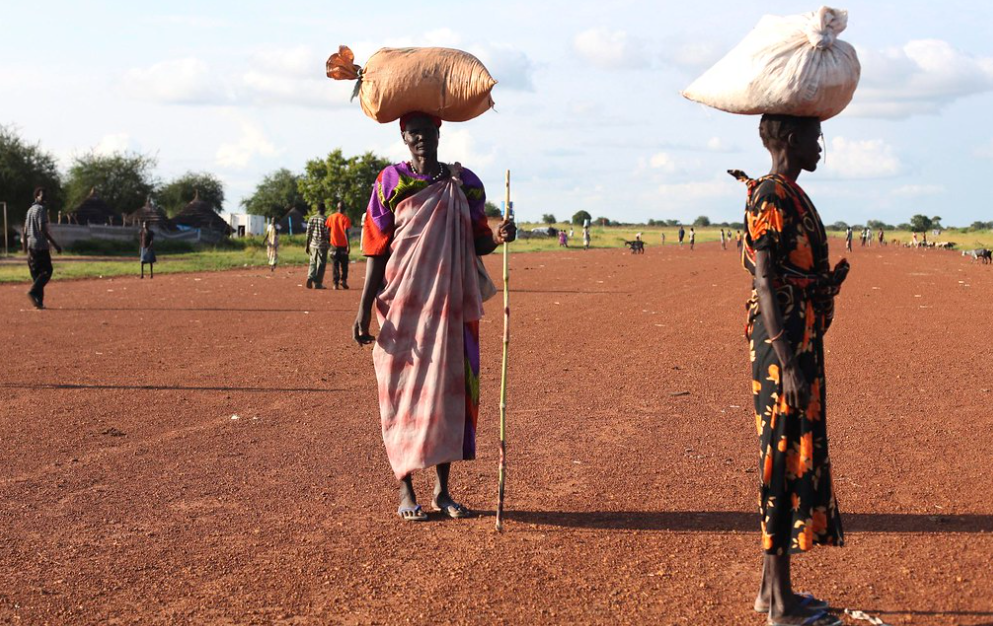 |
 |
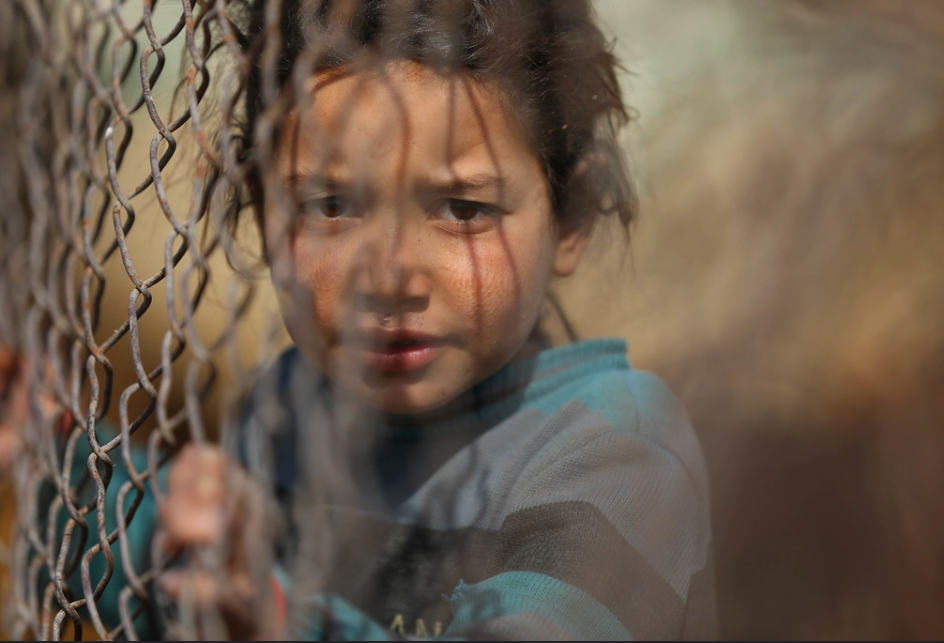 |
The Right to Development |
Human Rights Situation in South Sudan | Report on slavery: causes and consequences |
The UN Commission of Inquiry on the Syrian Arab Republic |




